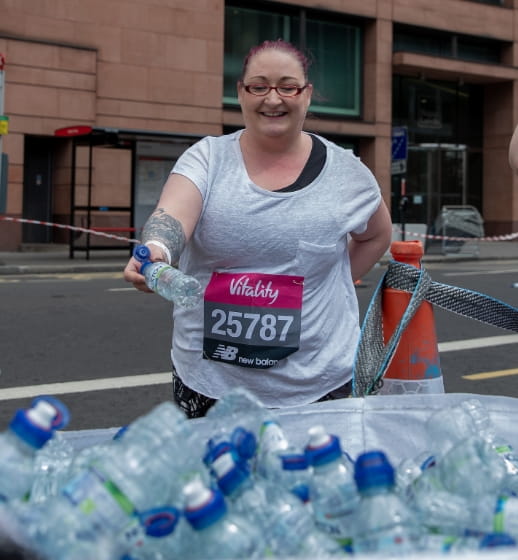Inspiring innovation in mass participation events
As organisers of the Vitality London 10,000, London Marathon Events (LME) is proud to lead the way in showing the power of mass participation sport as a force for good, and the hugely positive effects our events have had on millions of people since the first London Marathon in 1981.
Our events have a proven track record of inspiring activity, improving physical and mental health and bringing communities together – raising billions of pounds for charities and supporting local businesses in the process.
Driving positive change
We want to ensure our events and activities also drive positive environmental change, with environmental sustainability being one of the six company objectives that guide everything we do here at LME. Since 2019 we have focused on measuring and continuously reviewing our impacts to inform our decisions.

